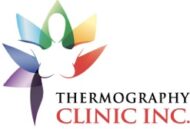Seven Reasons for Breast Thermography
Alexander Mostovoy, DHMS, BCCT According to Dr. Peter Goetzsche a director of Nordic Cochrane Collaboration in Copenhagen, Denmark, “I believe the time has come to realize that breast cancer screening programs can no longer be justified,” In his recently published book ‘Mammography Screening: Truth, Lies and Controversy’ Dr. Gotzsche presents a compelling argument that if we use mammography for over 10 years we can save one life for every 2,000 women but harm 10 others. In my opinion, the current approach for indiscriminate screening for ‘early detection’ of breast cancer is inadequate at best and dangerous at worst. By the time a lesion is detected by mammography it has been in the making approximately 8 to 9 years. In other words, this is late detection not ‘early’ by any stretch of imagination. When you understand the role that breast thermography offers, I think that you’ll consider it being part of your essential maintenance program. Reason 1. Completely Safe Breast Thermography measures heat naturally emitted from your body. It involves no-radiation, it is completely non-invasive and poses absolutely no risk to the patient. Reason 2. Measurement of Function Breast Thermography can detect physiological changes (how your breast functions) sometimes years before any structural changes take place. Reason 3. Early Warning System By assessing risk involved with breast cancer it is highly predictive providing you with an early warning system |
Reason 4. Monitoring
Breast Thermography is indispensable at assessing the effectiveness of treatment along with hormonal influences and their effect on breast health.
Reason 5. All Shapes and Conditions
Breast Thermography is best used for women with all breast shapes, women with fibrocystic condition and women with implants.
Reason 6. Long Term Tracking
Once a baseline is established we’re able to track any changes that occur over a longer period of time to determine if this patient is stable, getting better or moving in the wrong direction.
Reason 7. Risk Assessment
Someone who’s assessed as high risk will be asked to escalate to physical examination and structural testing to make sure that they get a full and complete evaluation. However, in the likely event that all of the results are negative does it really mean that there is nothing going on given the fact that ‘detectable size” takes 8-9 years? At this point the best approach would be to evaluate the reasons why someone is high risk and develop a preventive program to help lower their risk factors. It makes more sense to use tests like mammography diagnostically for women who are deemed high risk with breast thermography rather than just screening everyone indiscriminately and causing more harm and confusion.

